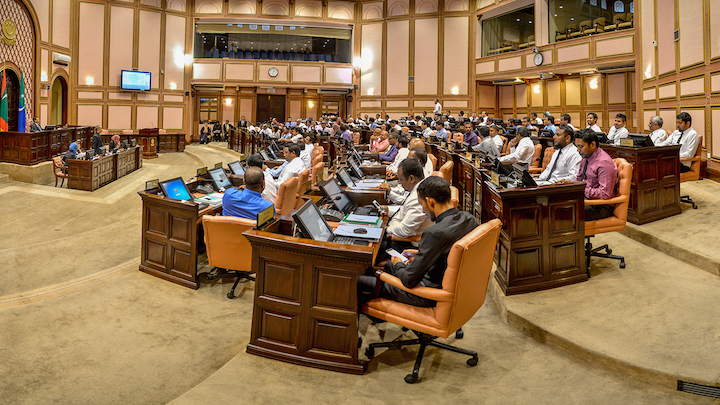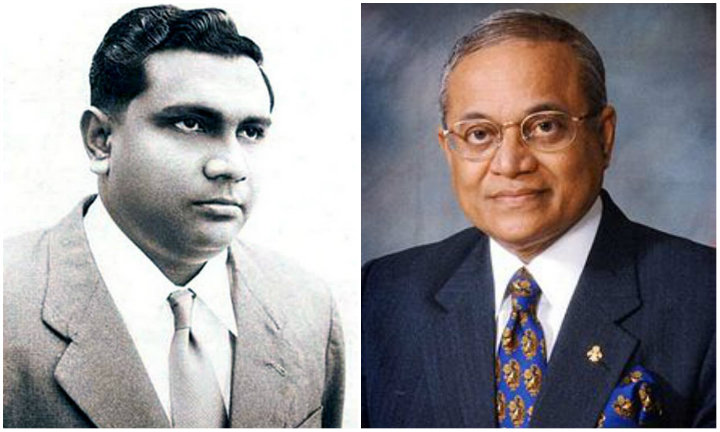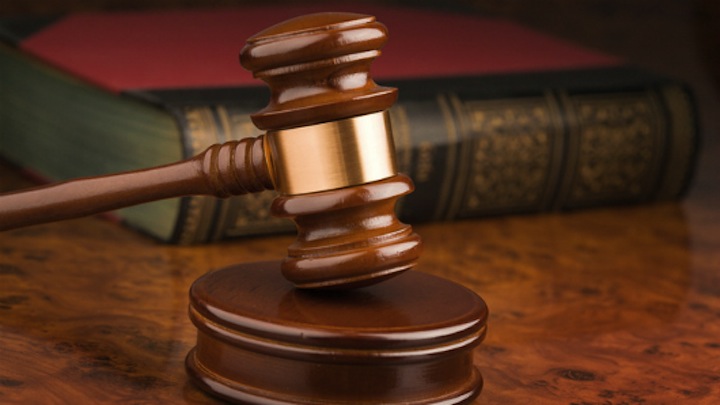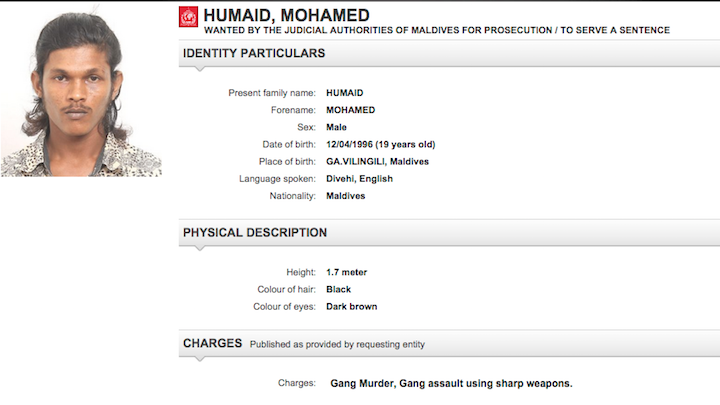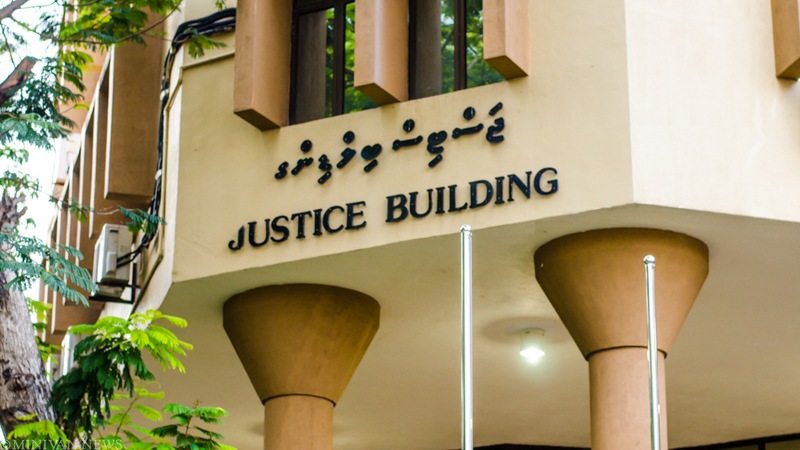This article is by Hussein Shameem, a partner at Aequitas Legal Consultants and the former deputy Prosecutor General.
Today is July 16, 2015, a momentous day in the history of the Maldives’ criminal justice system. The penal code of 1968 expired at 11:59pm on July 15. In this historic moment, 12am on July 16, 2015, a brand new penal code takes effect in the Maldives.
The revolutionary change we are ushering in today is significant even by global standards, and equivalent to the historic change brought by the ratification of a new constitution in the Maldives on August 7, 2008. The constitution, in addition to granting many fundamental rights, also brought in major reforms to the criminal justice system. These reforms can only be complete with the enforcement of the new penal code.
Article 61 (b) of the constitution states: “No person may be subjected to any punishment except pursuant to a statute or pursuant to a regulation made under authority of a statute, which has been made available to the public and which defines the criminal offence and the punishment for commission of the offence.”
The statute that defines criminal offences and the punishment for the commission of those offences is the penal code that took effect today. This law states, in clear and simple language and not in legal jargon, what criminal offences are and what their corresponding punishments are.
This penal code will improve transparency in the law enforcement sector. It clearly lays out what law enforcement officers can and cannot do, and provides measures that judges must refer to in meting out punishment. It allows an offender to argue several justifications in their defense, such as self- defense, defense of property or that of law enforcement authorities.
This is the age of transparency and access to information. Laws must clearly state how people are to be treated. This is a crucial element of the philosophy of the rule of law. If an individual knows beforehand how they will be treated under the law, it will increase their trust in the legal system. Public trust is one element lacking in and much needed for the Maldives criminal justice system. This penal code paves a path to gain that trust.
This penal code only applies to events that occur after 12:01am on July 16, 2015. Hence, the old law will be used in the prosecution of events that occurred before the new law came into force. This is because the public must be notified before a certain action is declared as a new offence. If an act is not an offence at the time at which it was committed, the person who committed the act cannot be prosecuted retroactively by a new law. This is not justice. Since this law came into force today, and since the notice was provided today, this law only applies to events that occur today onwards.
What will happen to cases under investigation at present?
Some crimes are reported to the police only days after they took place. Since the current penal code only applies to events that occur from today onwards, the police must consider the date on which the reported offence took place. Depending on the date of the alleged offence, the law they apply will be different. Hence, law enforcement agencies will have to consider both laws for a time being. But this will be resolved soon, when police start receiving reports of events that occur from today onwards.
This overlap is inevitable. If the enforcement of a criminal law is suspended for any period of time, it may permit criminality for that period. The police and law enforcement agencies will have to bear some difficulties in this period of transition, for our protection and safety.
What will happen to cases sent for prosecution to the Prosecutor General’s Office?
The Prosecutor General (PG) must press charges according to the law in force at the time that an offence was committed. Even if the punishment for the offence is considerably lesser in the new law, the charges must be filed under provisions in the law in effect at the time the act was committed.
Judges, however, must consider the more lenient punishment in sentencing. I will address that in the next section
What will happen to ongoing cases at the criminal court?
With the enforcement of the new penal code, prosecution in ongoing cases will continue according to the offence the person was charged with under the old law.
However, the accused has the following rights:
Firstly, the defendant will have the right to the justifications outlined in chapter 40, 50 and 60 of the current penal code. For example, if the offence was committed in self-defense, the defendant can take this argument up in the trial. Chapter 40 introduces six defenses, chapter 50 introduces seven, and chapter 60 introduces six. These chapters detail how these justifications can be used. The defendant will now have the right to argue the justification relevant to their circumstances.
Secondly, Article 59 (a) of the constitution states that if the punishment for an offence has been reduced between the time of commission and the time of sentencing, the accused is entitled to the benefit of the lesser punishment. Hence, judges are obligated to consider the punishments outlined in the old and new laws and mete out the lesser punishment. If not, the accused has the right to appeal the sentence at the High Court. Unlike before, the accused can appeal either the reasoning or the severity of the sentence at the High Court. If judges find that the accused was handed the severe sentence, they can reduce the sentence to the lesser punishment.
What will happen to completed cases?
If a case had been tried and a verdict had been delivered before the new law came into force, there will be no change to the sentence.
Exempted Acts
Even though the new penal code takes effect today, Article 18 states that the following acts shall take precedence (meaning provisions in the following Acts will take precedence over that in the penal code):
- Act 12/2009: Special Provisions Act to Deal with Child Sex Abuse Offenders
- Act 17/2010: Intimidation and Possession of Dangerous Weapons and Sharp Instruments
- Act 17/2011: Narcotic Drugs Act
- Act 12/2013: Anti-Human Trafficking Law
- Act 13/2013: Anti-Torture Act
- Act 10/2014: Money Laundering and Terrorism Financing Act
- Act 17/2014: Sexual Offences Act
Even though provisions in the above-mentioned laws will take precedence over the penal code, for prosecution under those laws, the defendant will get the benefit of defenses. If the defendant is able to prove such a defense, they may not be punished. For example, if a defendant is able to prove they were mentally incapacitated at the time of committing the offence, they may not be sentenced.
The offences mentioned in these laws, and the procedures relating to those offences must be reviewed by the Majlis and a decision on the annulment of these Acts must be made before July 15, 2016.
Because of all the reasons outlined above, the enforcement of the new penal code is truly a historic event. It opens doors for the Maldivian criminal justice system to become a globally accepted system.
Human beings wrote the penal code. Therefore, it is likely to have some flaws. They will become clearer as we begin to enforce the new law. These flaws can be corrected and the law can be improved further. In all countries, it takes some time to reform and improve laws. Our task now is to identify such gaps and block them. The Attorney General’s Office has set up a mechanism to do so—the Legal Resource Center (LRC). This center will consult with all stakeholders, conduct research and bring the necessary reforms to this law.
The legal system is not just dependent on good laws, but also on their enforcement. If we are unable to implement and enforce the law, even the most perfect law will not bring resolutions. I call on the law enforcement agencies to be sincere in enforcing this law, even if there are some difficulties at first. When problems arise, we must resolve them. The real problem is when there is no interest in solving problems.
Shameem is a consultant with the Legal Resource Center.
This is a translation of an article written in Dhivehi. Translation by Zaheena Rasheed.
All comment pieces are the sole view of the author and do not reflect the editorial policy of Minivan News. If you would like to write an opinion piece, please send proposals to [email protected]
Likes (3)Dislikes
(3)Dislikes (1)
(1) 